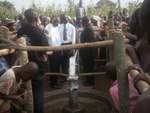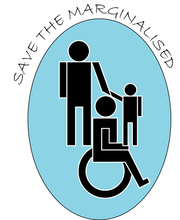Save The Marginalized
Unverified non-profit organisation
Save the marginalized is community based organization which is nonprofit oriented registered under NB.CD/2499 but with the aim of improving people lives.
Initially, the organization started its operations in Kamuli district supporting girls & women who have been victims of rape & sexual violence, L
legal aid, health & care, agricultural production improvement for household food security and income generation. Currently, STM operates in the rural poor Kabuli of Eastern Uganda focusing on health & care and socio-economic empowerment of girls and women with a major aim of fighting HIV/AIDS & poverty among the orphan & vulnerable children, girls & women, Youths, disabled and the marginalized in different aspects.
The objectives:
1. To improve on the health of people with HIV aids in community but more so the disabled and those who have been affected.
2. To enforce gender equality and fight for their rights and implement the work on the ground.
3. To improve the life of orphans and those burdened by their Parents.
4. To improve and protect the environment and the echo system and biodiversity
5. To improve the levels of education among the people and improves cheap eduction
6. To improve the welfare and social – economic development of elderly women and their orphaned children through provision services.



